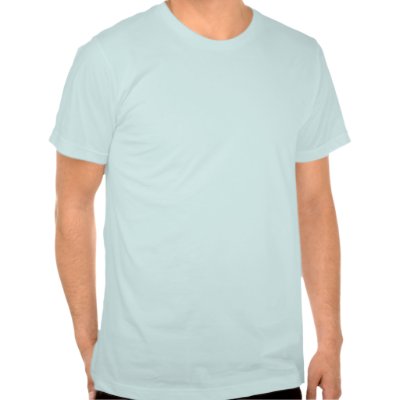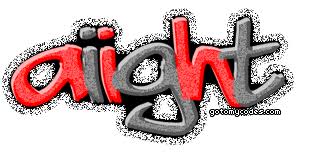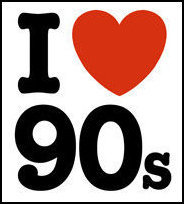Slang and colloquial expressions have a certain way of dating things. At the time, these phrases seemed so unspeakably fresh and modern, but in retrospect it's clear that these slangy expressions are laughable at best. When we look back at the way we spoke just 10 or 15 years ago, it's easy to cringe at the ridiculous words and phrases we peppered into our daily conversation to feel hip and cool. I'll raise the roof to that.
Whether you were a frequent user and abuser of the day's trendiest terminology or simply dabbled in them recreationally, you can't deny their ubiquitousness in the 90s. Much as we may like to bury it away in our past, most of us were guilty of using these expressions at one point or another. I say, embrace your cheesy slang-dropping former self and revel in the wonder that is 90s slang--part two*:
Boo-Ya

Definition: (noun) Nonsensical noise to be used in situations where one emerges victorious over others and wishes to rub it in. The preferred exclamation of sore winners everywhere.
See also: In your face, BAM!
Example: I just got Jimmy in the face with my Super Soaker. Boo-ya!
Yo Mama

Definition: (noun) Your mother. While this seemingly innocuous phrase may not hold an inherent insult, its context usually suggests a derogatory connotation. In many cases followed by "so fat" or "so ugly" and an expository joke at your innocent mother's expense. As your mother is generally not directly involved in the back-and-forth trading of insults, its use suggests that your inherent familial stock resides at a Depression-era low. Plus, it's just mean.
Example: Yo mama's so fat that when she sits around the house, she sits around the house.
Note: You could probably throw in a boo-ya at the end of that for good measure.
Who's Your Daddy?
 The pop culture reference may not be 90s, but it is pretty funny...if I were just a hair nerdier I would be sporting this t-shirt
The pop culture reference may not be 90s, but it is pretty funny...if I were just a hair nerdier I would be sporting this t-shirtDefinition: (question, inquiry) Literally, who is your father? Maury Povich has spent countless television episodes examining this very topic, but this single phrase allows a similar impact with significantly less DNA sampling. The expression signifies your dominance over a competitor, implying you have embarrassed him to the extent that you have ascended to the rank of his father. Usually not accompanied by an outright spanking, but the phrase elicits a verbal one.
Example: Oh, I just schooled you in French verb conjugation! Who's your daddy?
Also acceptable in above example: Qui est votre pere?
Open Up a Can of Whoop-Ass

Definition: (verb) A generally empty threat of physical harm to another.
Process: Hold the can of whoop-ass perpendicular to a flat surface. Using a can opener or sharp knife, carefully pierce the outer edge of the lid. Peel lid from can. Discard. Proceed to beat the crap out of someone.
Example: I'm about to open up a can of whoop-ass on whoever graffiti-ed obscenities all over my Trapper Keeper.
Whassup
 Definition: (question, inquiry) What is up. Not meant to be taken literally, though true pains in the butt may gleefully respond, "The sky." Best received in delivered into the phone at an irritating decibel level with an incessant lengthening of each letter.
Definition: (question, inquiry) What is up. Not meant to be taken literally, though true pains in the butt may gleefully respond, "The sky." Best received in delivered into the phone at an irritating decibel level with an incessant lengthening of each letter.More: Budweiser popularized this pronunciation in an incredibly catchy but undeniably irritating 1999 ad campaign.
See also: How are you, what's new, what's (up arrow)
Example: I'm probably going to do something I'll regret if I have to watch that Whasssssuuuuppp?? commercial one more time. I'm warning you.
Raise the Roof

Definition: (verb) To delight in one's success. An outward expression of one's prideful joy.
Process: Bend arms upward, palms facing above you. Pump flat palms upwards several times in succession. Enjoy.
We would also accept: Remove roof from house. Raise skywards.
Example: This party is kickin'--raise the roof!
Word (to your Mother)

Definition: (interjection) A salutation or indication of agreement. The "to your mother" part is optional, but reflects firmer agreement.
See also: I concur, well said sir
Example: Yo man, let's get out of here. Word to your mother.
Note: That example has been shamelessly lifted from the song "Ice Ice Baby"
As If
 Definition: (exclamation, interjection) A comical expression of exaggerated outrage. Popularized by Clueless's Cher Horowitz, the phrase indicates one's speculation on the unlikeliness of a situational outcome.
Definition: (exclamation, interjection) A comical expression of exaggerated outrage. Popularized by Clueless's Cher Horowitz, the phrase indicates one's speculation on the unlikeliness of a situational outcome.Example: Ugh, get off of me! As if!
Aiight
 Definition: (adverb) An alternative pronunciation of "all right"; an indication of agreement with an inexplicable aversion to l-r connectivity.
Definition: (adverb) An alternative pronunciation of "all right"; an indication of agreement with an inexplicable aversion to l-r connectivity.Example: "You up for going out tonight?" "Aiiiiight."
Duh!

Definition: (exclamation, interjection) Of course, certainly. A reactive response to stupidity and obviousness. Grated on the nerves of a generation of parents who did not appreciate the sass.
Example: "Did you clean your room?" "Duh!"
My Bad
 Definition: (interjection) Assumption of guilt or blame; admission of a mistake.
Definition: (interjection) Assumption of guilt or blame; admission of a mistake.Example: (Nearly kills man on bicycle in out-of-control, poorly driven Jeep) "Oops! My bad!"
Note: Yes, that's a scene from Clueless. Cher's coinage is legendary.
Phat
 Definition: (adjective) According to slang lore, an acronym for "Pretty Hot and Tempting." An urban word adopted by suburban poseurs in typical filter-down slang fashion. Experienced extreme overuse and outwearing of welcome in the late 90s. For clarification purposes, may need qualifying statement regarding the "P-H" spelling.
Definition: (adjective) According to slang lore, an acronym for "Pretty Hot and Tempting." An urban word adopted by suburban poseurs in typical filter-down slang fashion. Experienced extreme overuse and outwearing of welcome in the late 90s. For clarification purposes, may need qualifying statement regarding the "P-H" spelling.See also: Cool, Jiggy...yes, Jiggy.
Example: "Man, that girl is phat. With a p-h. Also, kind of with an f."
*Find part 1 of the Children of the 90s Catch Phrase Mash-Up here

















